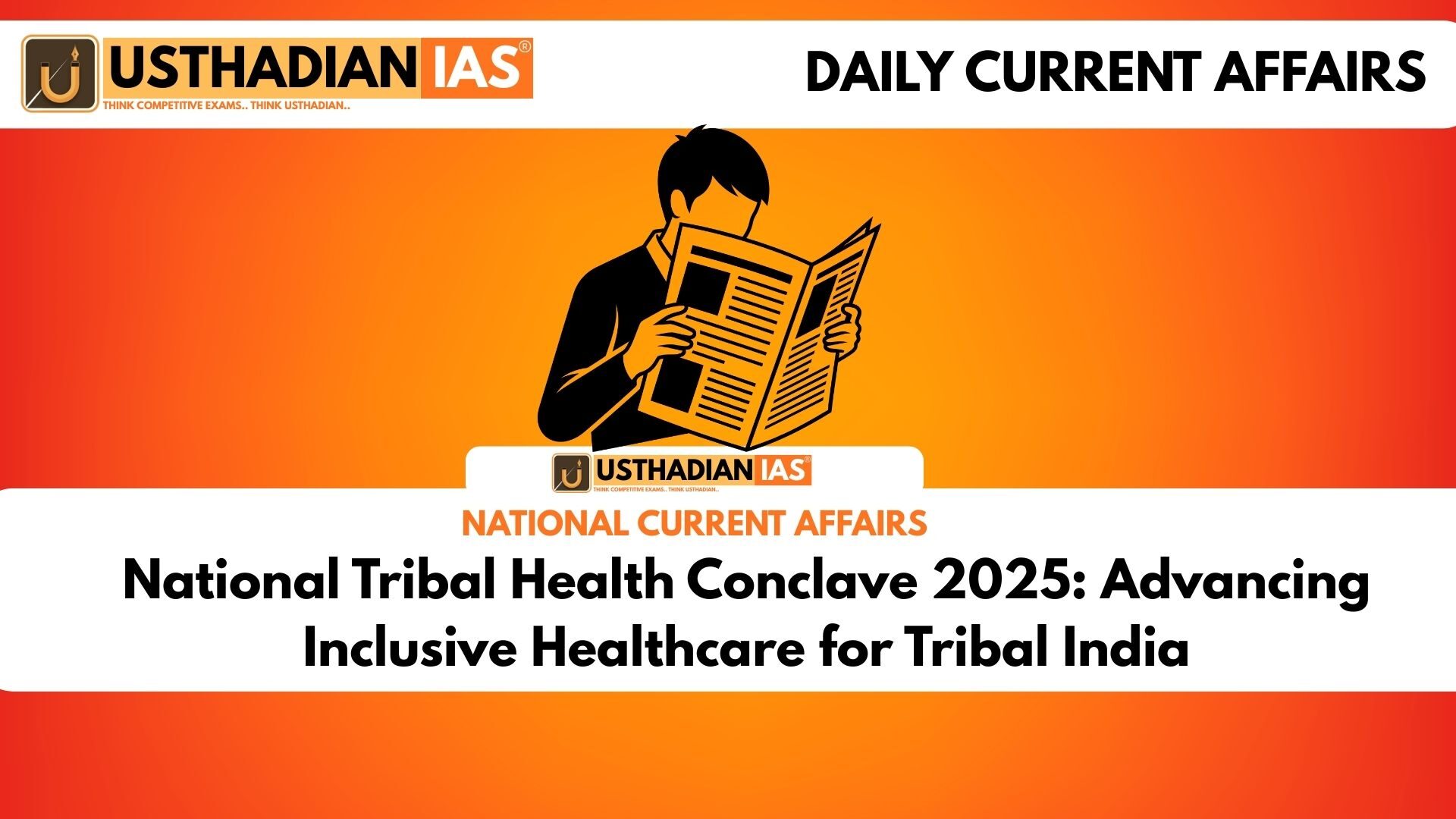Bridging the Health Divide for Tribal India
National Tribal Health Conclave 2025: Advancing Inclusive Healthcare for Tribal India : On January 20, 2025, the National Tribal Health Conclave was held at Bharat Mandapam in New Delhi, jointly hosted by the Ministry of Tribal Affairs (MoTA) and the Ministry of Health and Family Welfare (MoHFW). As a part of the Dharti Aaba Janjatiya Gram Utkarsh Abhiyan, the conclave sought to address the deep-rooted healthcare challenges faced by India’s tribal populations. The event marked a major step toward designing context-specific healthcare strategies that resonate with tribal lifestyles and geographical realities.
From Recognition to Reform
Rather than merely highlighting the healthcare challenges, the conclave focused on developing practical, community-based solutions for tribal regions. Participants emphasized the importance of local engagement, integration of tribal healing traditions, and research-based healthcare models. The discussion underlined the need for a hybrid system—where scientific medicine and indigenous practices work together to deliver trust-based health services.
Collaborations for Impact
The event featured active participation from MoTA, MoHFW, AIIMS, and non-profit organizations, demonstrating a strong multi-sector approach. One major outcome was the signing of Letters of Intent to support a tribal block in Odisha, which will serve as a pilot region for healthcare innovations and field research. These steps aim to create scalable models that can later be implemented in other tribal zones across India.
Game-Changing Announcements
Among the most impactful initiatives was the establishment of the Bhagwan Birsa Munda Chair in Tribal Health and Haematology at AIIMS Delhi. This academic post will focus on research and treatment of blood-related disorders common among tribal communities. Additionally, 15 Centers of Competence (CoCs) have been launched in 14 different states to combat sickle cell anemia. These centers will facilitate early detection, affordable treatment, and awareness-building in remote regions.
Tackling Sickle Cell Anemia
Sickle cell anemia (SCD) is a major health burden in tribal belts of central and eastern India. The disease causes red blood cells to deform, leading to severe pain, organ damage, and frequent hospitalizations. Through the newly launched CoCs, the government aims to shift focus from late-stage care to early-stage prevention, a move that could significantly reduce suffering and economic loss in tribal households.
Respecting Culture and Supporting Youth
The conclave also recognized the value of traditional tribal healers, many of whom are already trusted health advisers in their communities. Plans to train and incorporate these healers into the formal healthcare system were discussed to improve access and trust. The event also highlighted mental health and adolescent care, stressing that modern healthcare must address emotional and psychological challenges faced by tribal youth amidst social transition.
A Roadmap for Sustainable Change
The conclave concluded with a comprehensive action plan that prioritizes technology (like telemedicine), community partnerships, and cultural respect as pillars of healthcare reform in tribal regions. More than just improving infrastructure, the strategy envisions a future where tribal communities feel supported, heard, and included in India’s health journey. The model presented at this conclave can guide similar efforts in other marginalized regions across the country.
Static GK Snapshot
National Tribal Health Conclave 2025: Advancing Inclusive Healthcare for Tribal India :
| Topic | Fact |
| Tribal Population in India | 8.6% of the total population |
| Common Tribal Disorder | Sickle Cell Anemia |
| Flagship Campaign | Dharti Aaba Janjatiya Gram Utkarsh Abhiyan |
| Conclave Venue | Bharat Mandapam, New Delhi |
| New Initiative at AIIMS | Bhagwan Birsa Munda Chair in Tribal Health and Haematology |
| Health Model Highlight | Integration of Traditional Tribal Healers |








